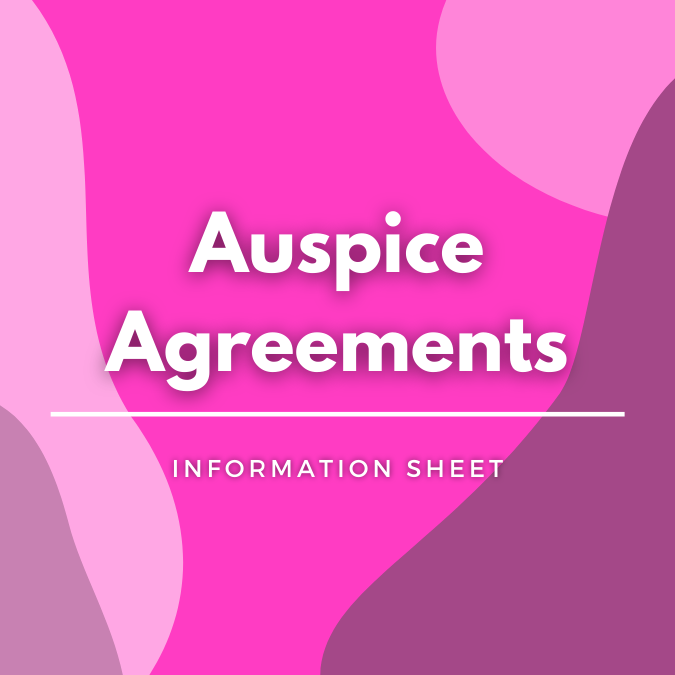Signing Legal Documents
This information sheet explains how to sign agreements like contracts and deeds in a way that ensures they are legally binding. This is called “executing” the agreement. We’ve used both “signing” and “executing” in this information sheet.
It is important to know how to execute agreements correctly so you can be confident that any agreement you make is valid and binding on both parties.
Key points:
- Contracts are preferred: You should execute your agreement ‘as a contract’ in most situations. There are some situations where it is more appropriate to execute ‘as a deed’.
- Individuals
- Contracts: An individual can execute a contract by signing and dating it. This can be done by pen and paper, or electronically.
- Deeds: An individual can execute a deed by making sure that the deed contains the words ‘Executed as a deed’ and signing and dating beneath the words ‘Signed, sealed and delivered by [insert your name]’. This signing can be done by pen and paper, or electronically in NSW, Queensland and Victoria. In most states and territories (except Queensland and Victoria), someone will also need to witness you signing the deed.
- Companies: A company can execute a contract or deed in any of the following ways:
- two directors, a director and secretary, or a sole director / secretary executing the document physically or electronically;
- applying the company seal; or
- any other ways permitted in the company’s constitution.
- Last minute changes: If you make any last-minute changes to the agreement, you should either print a new copy of the agreement or mark up the change by hand and have both parties initial the changes before executing.
This information does not deal with making wills. For information on wills, see https://www.artslaw.com.au/information-sheet/will-for-visual-artists/.
1. Contracts and deeds
You may have seen the words ‘Executed as a deed’ or ‘Executed as a contract’ on agreements you have signed in the past. Our template agreements will sometimes give you the option to execute the agreement as a contract or a deed. This section explains the differences between the two forms of agreement, and explores some common situations where you should use a deed instead of a contract.
What is the difference between a contract and a deed?
- What is a contract? A contract is simply an agreement between two or more persons (the parties) which is legally binding. A contract can be written or oral, but you should try to keep a written record of any contract you enter into. This will make it easier to enforce the contract if the other party fails to do what they promised.
- What is a deed? A deed is a document in which one or more parties promise to do something. It is legally binding if it is ‘signed, sealed and delivered’. These days, this usually just means ensuring that the deed contains the words ‘Executed as a deed’, signing and dating beneath the words ‘Signed, sealed and delivered by [insert your name]’ and then sending the deed to the other party (physically or electronically). In most States and Territories, you need someone to witness you signing the deed. This is not required for deeds made in Victoria or Queensland and is never required for a contract.
- What is the difference between a contract and a deed? The key difference is that a contract is only binding if it includes “consideration”. Consideration means an exchange of value. In other words, that both parties are giving something in return for the other party’s promise. Consideration does not need to be money, but it usually is.
A deed does not require consideration, so it is more flexible than a contract and can be used in more situations. While consideration is not necessary for a deed, you can include a small or ‘nominal’ payment (like $1) in a deed out of caution (in case there is a mistake in how it is executed); this way, you may be able to argue that the document is legally enforceable as a contract.
When would you use a contract or a deed?
Generally, you should only legally bind yourself to do something if you expect to get something in return. So executing your agreement as a contract should be the default.
There are many situations where this will not be the case, such as the following:
- Volunteering: If you offer to do something for free as a volunteer, a deed would be required for the other party to enforce the deed.
- Vague consideration: It is also a good idea to use a deed if the consideration (i.e., value) you are receiving is vague. For example, if you have been offered unpaid work experience, the fact you are getting on-the-job experience may not be enough to meet the requirements for consideration.
- Only one party making promises: A deed will also be appropriate if only one person is promising to do something. A one-sided deed like this is often called a ‘deed poll’. It is commonly used for confidentiality agreements.
2. Signing as an individual
Signing yourself
If you are an individual and executing a document yourself, sign your name and write in the date of signing where indicated at the bottom of the agreement.
Signing as an agent
If you are executing on behalf of someone else (as their agent), you should insert the following sentence into the signature section:
“I, [name of agent] am the authorised agent for [name of person you are executing on behalf of].”
Signing as a minor
If anyone signing the agreement is under the age of 18, we recommend you seek legal advice. People under the age of 18 are legally considered minors. There are specific requirements for agreements with minors to be enforceable. For example, the minor’s parent or legal guardian needs to execute the agreement as well as the minor, but even then there may be other requirements.
Signing deeds
If the document is a deed, you will generally need a witness to say they saw you sign the document (unless you are in Queensland and Victoria). The witness does this by writing their name and signing and dating the document below or next to your signature.
Electronic signing of contracts
In all Australian states and territories, an individual may execute a contract electronically so long as the following conditions are met:
- identification: the contract clearly identifies the person or people that are signing the contract electronically;
- reliability: the method of signing electronically is reliable. For example, electronic signature services such as DocuSign are generally quite reliable. In some cases, simply typing your name into a signature block may be reliable enough; and
- consent: if one party wants to sign a contract electronically, the other party has consented to the first party signing the contract electronically.
Electronic signing of deeds
In NSW, Queensland and Victoria, individuals may execute deeds electronically. In NSW, witnessing can be done electronically. As mentioned above, in Queensland and Victoria, witnessing is not needed.
In other states and territories, you cannot electronically execute deeds as an individual or have them witnessed electronically. In these states and territories, you will need to print the deed, physically sign it in front of a witness, scan the deed and send it to the other party for them to print and sign in front of their witness.
3. Signing as an organisation
Signing as a company under the Corporations Act 2001 (Cth)
A company incorporated under the Corporations Act 2001 (Cth) can execute documents in accordance with section 127 as follows:
- by signing: by the signature of either: 2 directors; a director and secretary; or a company with a sole director who is also the secretary, by the sole director (the signature does not need to be witnessed); or
- by common seal: when the seal is placed on the document and the application of the seal is witnessed by the signature of either: 2 directors; a director and secretary; or for a company with a sole director who is also the secretary, the sole director.
In early 2022, the Corporations Act 2001 (Cth) was amended to allow both of the above to be done in person or electronically.
Please note that section 127 does not prevent a corporation from following the rules for executing documents that are set out in the constitution of the company.
Signing as an Indigenous Corporation
Section 99.5 of the Corporations (Aboriginal and Torres Strait Islander) Act 2006 (Cth) applies the same requirements for executing documents as set out above, including the option of executing documents following the rules set out in the constitution of the corporation. However, it has not yet been amended to allow section 99.5 to be done electronically, so Indigenous Corporations should continue to executing documents in person and only to execute documents electronically if permitted in its constitution.
Signing as an incorporated association
An incorporated association may execute a document in accordance with its constitution or as set out in legislation of the state or territory under which the association is established, which sets out how documents can be executed, such as the relevant incorporated associations legislation. If you are signing on behalf of an incorporated association, you must consult the organisation’s constitution and the relevant legislation to determine who is authorised to sign. It may also be necessary to stamp or “affix” the document with the association’s seal if this is required under its constitution.
4. Last minute changes
If there is a change to the document at the last minute before signing, you can either type up a new document, or make the change in handwriting and have each party initial next to the change before signing at the bottom of the document. You may also wish to initial each page in order to make sure no new pages can be inserted after you have signed, but this is not strictly necessary.
Further Resources
For more information about the law, consider these information sheets from Arts Law:
Disclaimer
The information in this information sheet is general. It does not constitute, and should be not relied on as, legal advice. The Arts Law Centre of Australia (Arts Law) recommends seeking advice from a qualified lawyer on the legal issues affecting you before acting on any legal matter.
While Arts Law tries to ensure that the content of this information sheet is accurate, adequate or complete, it does not represent or warrant its accuracy, adequacy or completeness. Arts Law is not responsible for any loss suffered as a result of or in relation to the use of this information sheet. To the extent permitted by law, Arts Law excludes any liability, including any liability for negligence, for any loss, including indirect or consequential damages arising from or in relation to the use of this information sheet.
© Arts Law Centre of Australia
You may photocopy this information sheet for a non-profit purpose, provided you copy all of it, and you do not alter it in any way. Check you have the most recent version by contacting us on (02) 9356 2566 or tollfree outside Sydney on 1800 221 457.
The Arts Law Centre of Australia has been assisted by the Commonwealth Government through the Australia Council, its arts funding and advisory body.




